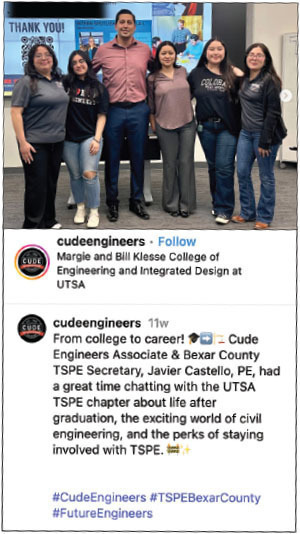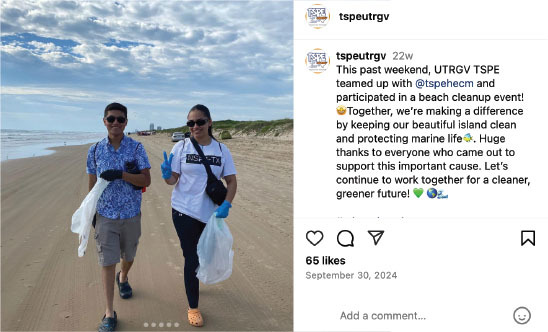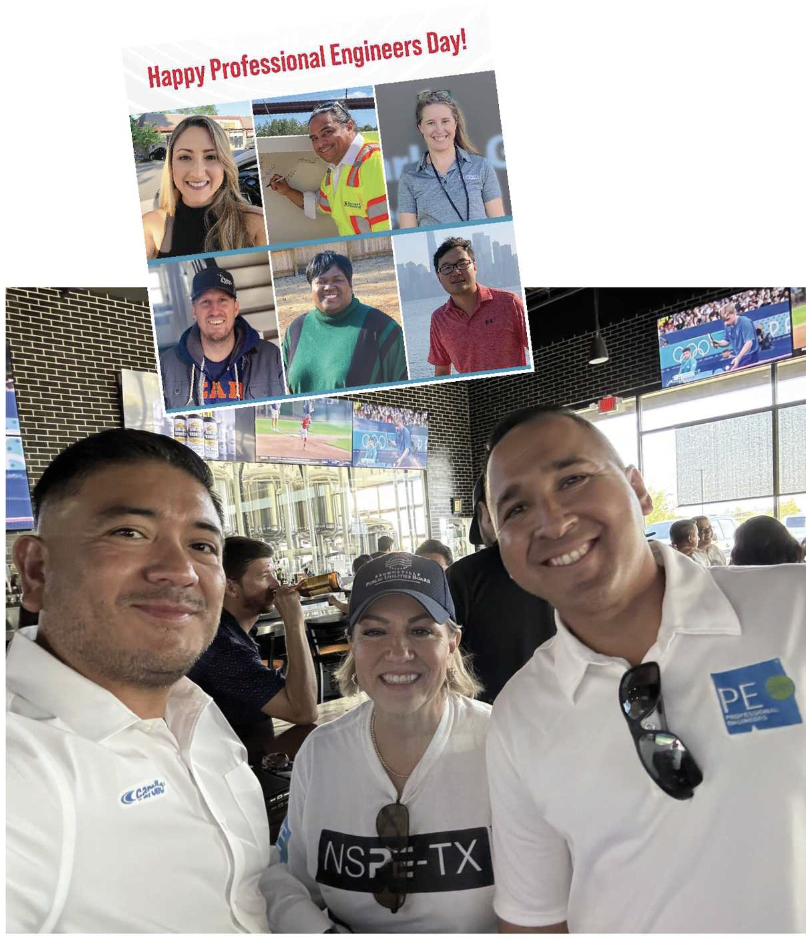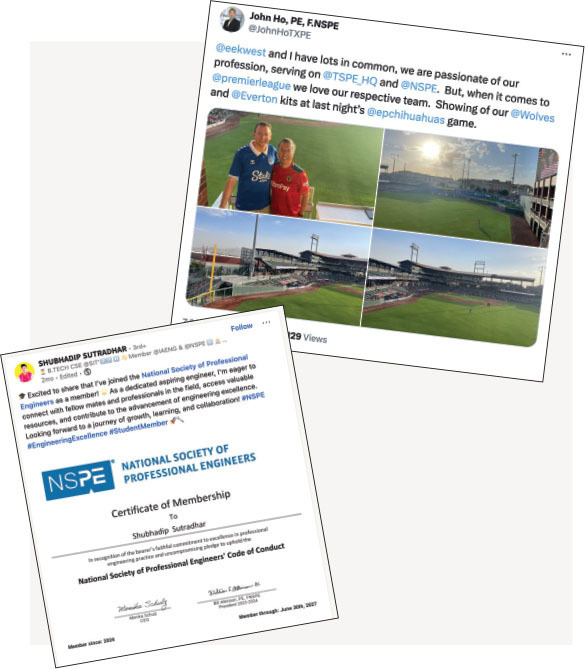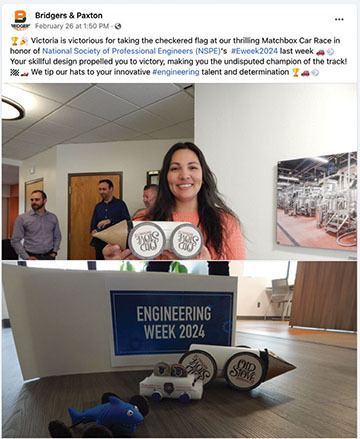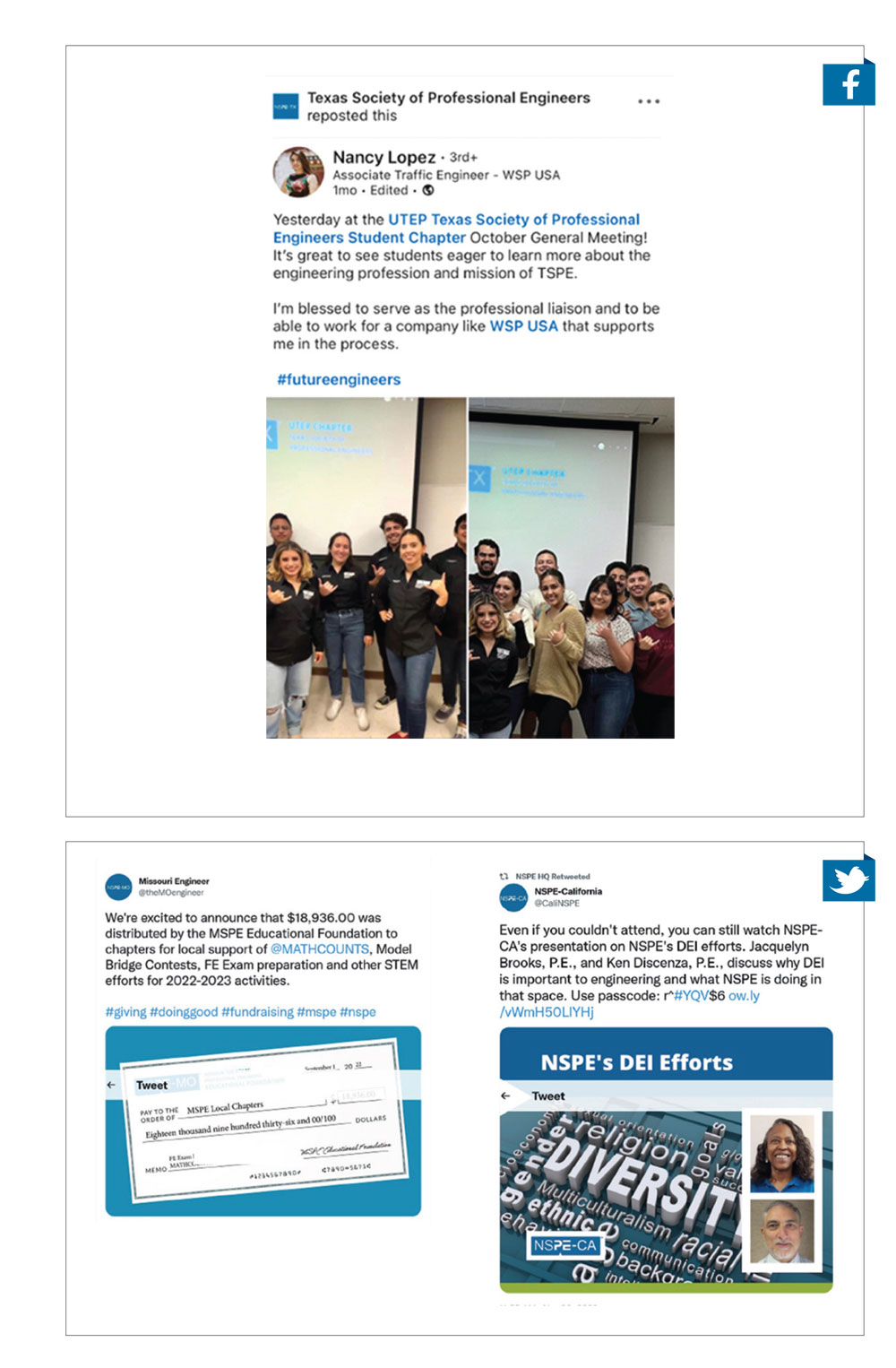March/April 2017
You Said It
NSPE members are sharing their views in many ways—though the new online NSPE Communities, Twitter, Facebook, letters to the editor, and more. Here are some of the recent highlights.
Regulations and the PE
I recently read that the new administration believes that 75% of regulations can be eliminated as a way of promoting economic activity and reducing the time and permits required to build companies (and infrastructure). I couldn’t help but make the connection that professional engineering licensure is a regulated institution sitting smack in the middle of the permitting process. Does this concern anyone?
Daniel Robles, P.E.
Edmonds, WA
I’m not in the least concerned with the proposed elimination of 75% of the regulations. As a profession based on the knowledge of scientific principles applied to real-life activities, we shouldn’t be either. If our value is determined by regulation only, then maybe we’re not so much contributing to the betterment (efficiency and long-term soundness of activities) as we are functioning as administrative gate keepers with a specially created place in a complex process. Please note that most industry and all federal activities are exempt from licensure laws—a great deal of the GDP happens without the participation of a PE. If we provide value, then we will have a secure place in the commerce of our nation. If not….
Jeffrey Wheaton, P.E.
Mongmong, GU
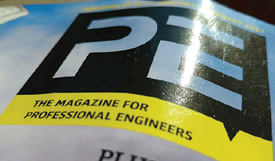 Brett M. Webb, Ph.D., P.E.
Brett M. Webb, Ph.D., P.E.
@dr_bw
Jan 23
Always look forward to receiving my @NSPE #PEMagazine in the mail. #Engineering #Engineer @ASCETweets
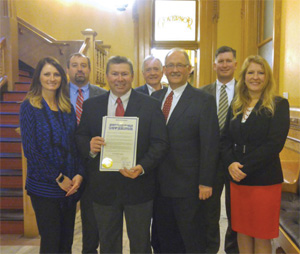 Tom Roberts, P.E.
Tom Roberts, P.E.
@tcrksusig
Jan 23
Gov. Brownback signs Engineer’s Week Feb 19-25 @nationaleweek @NSPE proclamation.Thanks @KansasEngineer @KSPEPresident for your leadership!
Advice for a ChemE Grad
My nephew will receive his B.S. in chemical engineering this May and would like to know what benefits the PE license would bring to this field. Can anyone explain some of the opportunities the PE license will provide in chemical engineering?
John Massa, P.E.
Milan, IL
I went to work for the phone company after graduating with my electrical engineering degree, and I obtained my PE after accumulating the requisite experience. My PE was absolutely useless because of the industrial exemption…until a new director of engineering, who was also a PE, took over my department. My career benefited immediately when he found out because he appreciated the effort and ability involved in becoming registered.
Now, years later, the old wire-line phone company is in decline, and I work for a company that designs cell phone sites. All the construction drawings that we create, which must be approved by the various building departments, are worthless until I stamp them. Because PEs with telecommunications expertise are such a rare commodity, I’m irreplaceable to my company (I’m actually set up as a separate legal entity), which is a very nice position to be in.
So, I would tell any young engineer, regardless of their field of study, get your PE if you can. It may be of no obvious or immediate benefit, but you never know what the future may bring.
Gregory Suhr, P.E.
Indianapolis, IN
Urge your nephew to get his PE license as soon as he can. The effort to get a PE license is small compared to getting that B.S. (ChE) degree. While it is true that currently PE licenses are not too often required of chemical engineers, there are some times when they are, and nobody knows at the beginning of a career where that career will go. Getting the PE license is a lot easier fresh out of school than later in life. That PE license is most likely to have a positive effect on your nephew’s career even if it never becomes a hard requirement. Also, having that PE after his name will provide him a personal prestige if he ever gets involved in his community.
Neil Yeoman, P.E.
FAIChE
Merrick, NY
Don’t miss out on the discussion in NSPE’s online Communities for professional engineers. Engage with your peers on issues of professional importance. Visit https://community.nspe.org.
Join the Conversation
There’s no shortage of ways to connect with the Society as well as other members. NSPE’s Communities, Twitter, Facebook, LinkedIn, and Instagram all help you make that connection. Or you can write a letter or send an e-mail to the address below.
On this page, we’ll show you some highlights of what people are saying. Keep in mind, however, that the views expressed are those of the author and do not necessarily represent the views of and should not be attributable to the National Society of Professional Engineers.
Share Your PE Experience with NSPE


 Volunteering at NSPE is a great opportunity to grow your professional network and connect with other leaders in the field.
Volunteering at NSPE is a great opportunity to grow your professional network and connect with other leaders in the field. The National Society of Professional Engineers (NSPE) encourages you to explore the resources to cast your vote on election day:
The National Society of Professional Engineers (NSPE) encourages you to explore the resources to cast your vote on election day: